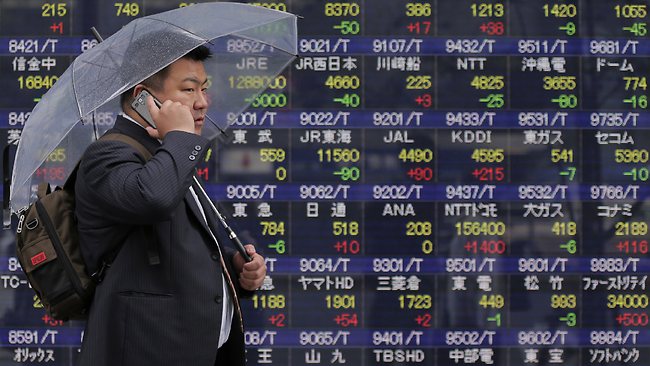
The sharemarket completed its biggest weekly drop in a year as a cocktail of global and domestic concerns drove the nation's benchmark index down all but once in the past five days.
The S&P/ASX 200 index slumped 3.8 per cent this week as investors speculated the US was close to winding down its stimulatory quantitative easing program, China's economy showed signs of weakness, and profit warnings by companies in Australia's mining services industry pointed to the fast-approaching end of the decade-long mining boom.
In Japan, the Nikkei recovered slightly after its dramatic 7 per cent plunge on Thursday, the biggest one-day fall since immediately after the 2011 tsunami and earthquake disaster.
Locally, the stock declines were broadbased. ANZ slumped 8.5 per cent in the week, leading the financial stocks lower.
Telstra lost 4.1 per cent, and Rio Tinto, the world's second-biggest mining group by market value, declined 1.4 per cent, while BHP Billiton fell 52c to $34.36.
Boart Longyear, which provides services to the resources industry, tumbled 19 per cent, while rival Transfield Services sank 29 per cent after both companies issued profit warnings as slowing investment by mining companies in new projects hits their income.
Crown chairman James Packer confirmed the company had sold its 10 per cent stake in rival Echo Entertainment for $264 million. Echo shares tumbled 11.92 per cent, or 41c, to $3.03, while Crown shares were off 23c, or 1.76 per cent, at $12.83.
The Australian dollar also had a turbulent week, passing through an 11-month low on Thursday after the Federal Reserve indicated plans to taper its bond-buying program that's been supporting global markets, before recovering to approach the end of the week only marginally lower.
That was enough to scare off some offshore investors who had been drawn to the attractive dividend yields of a number of heavyweight Australian companies, mainly the banks, whose share prices have surged this year.
At the close the dollar was at US96.79c, up 0.56c. But it is still down 7 per cent for the month
The sharemarket had been propped up by high-yield stocks that tend to become less attractive as the Aussie falls.
"You got the global factors going on and this correction in banks, which is continuing," said AMP Capital head of investment strategy Shane Oliver. "Some investors are worried about the Fed stopping bond buying prematurely at a time when the US economy is still fragile. I think a lot of the worry, though, is overblown."





